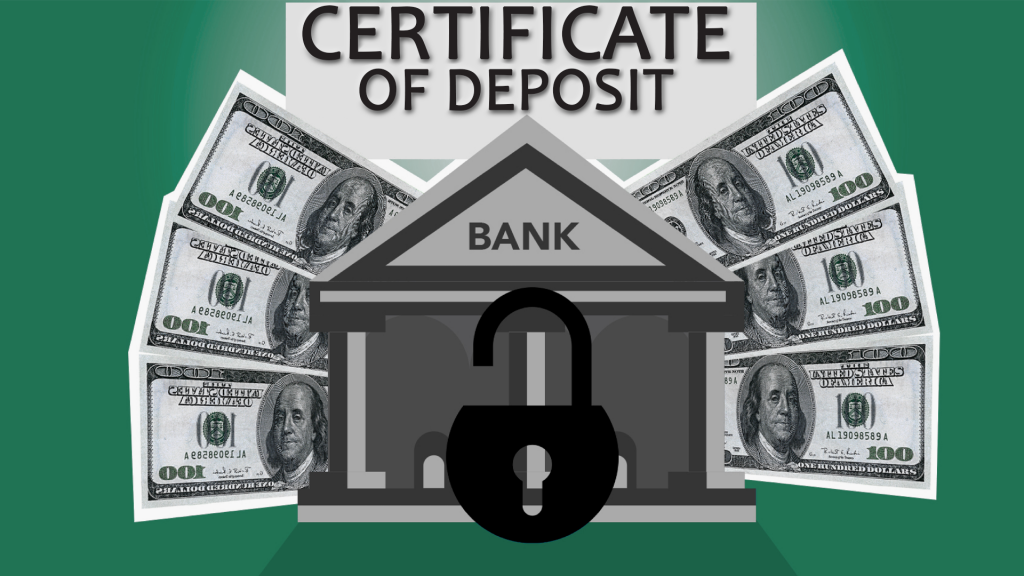
Different features of Negotiable Certificate of Deposit
Nov 09, 2023 By Triston Martin
A certificate of deposit (CD) with a minimum face value of $100,000 is called a jumbo CD. A negotiable certificate of deposit (NCD) is the same as a jumbo CD. However, NCDs often have a face value of $1 million or more. It is impossible to cash them in before they mature, even though the bank guarantees that they may typically be sold on a highly liquid secondary market. One example of a non-compilation disc (NCD) is a Yankee CD.
Understanding a Negotiable Certificate of Deposit (NCD)
An NCD is considered a short-term investment since its maturities may range from two weeks to one year. In most cases, interest is either paid twice yearly or when the instrument matures; alternatively, the instrument may be acquired at a discount to its face value. Interest rates are subject to negotiation, and the circumstances of the money market determine the yield on an NCD.
History of NCDs
First National City Bank of New York, now known as Citibank, was the institution that first offered NCDs back in 1961. The tool enabled financial institutions to obtain capital, which they could use toward lending. NCDs were a solution to the lack of deposits that had plagued financial institutions throughout the preceding decade. Many people who had money in the bank moved it out of their checking accounts, which did not earn interest, and into alternative assets such as Treasury notes (T-bills), commercial paper, and bankers' acceptances. Checking accounts are no longer available.
The broker agreed to accept transactions in certificates of deposit. This resulted in establishing a secondary market in which NCDs could be traded. By 1966, investors had $15 billion worth of outstanding NCDs in their portfolios. This sum increased to almost $30 billion in 1970 and $90 billion in 1975 when it peaked. The market for NCDs is predominantly comprised of affluent people and organisations, including businesses, insurance companies, pension funds, and mutual funds, among others. Those looking for an investment with a low level of risk and a high level of liquidity are likely to be interested in this market. The maximum value of an NCD for which the FDIC will provide insurance protection.
Advantages of NCDs
The NCD is characterised by low risk, one of its features. The National Certificates of Deposit (NCDs) come with insurance coverage from the Federal Deposit Insurance Corporation (FDIC) of up to $250,000 per depositor and each bank. After the Dodd-Frank Wall Street Reform and Consumer Protection Act in 2010, this was raised to $150,000 from its previous level of $100,000. As a result, the product appeals to consumers who would otherwise invest in other low-risk products, such as securities issued by the United States Treasury.
Non-convertible debentures (NCDs) are often seen as having a higher level of risk in comparison to T-bills, which have the full confidence and credit of the United States government behind them. As a result, the interest rates offered by NCDs are greater than those offered by Treasury bills. NCDs have interest rates that are greater than those of Treasury bills.

Disadvantages of NCDs
Nevertheless, if a bank can call the NCD, it will do so when interest rates drop. As a result, it will be difficult for investors to locate another NCD that offers an interest rate comparable to this one. To make up for the investor having to take on more risk, the initial rate paid out to holders of NCDs will be greater.

Callable CD
A certificate of deposit and an embedded call option held by the CD issuer together make up what is known as a callable certificate of deposit. When interest rates drop, the issuer of a certificate of deposit (CD) will often try to call back the CD to avoid paying a set interest rate higher than the current rate. Afterwards, the bank could issue new certificates of deposit (CDs) with reduced interest rates.
A certificate of deposit, or CD, is essentially a time deposit that banks issue to investors. Investors buy CDs intending to earn interest on their investment for a predetermined amount of time at a rate that is potentially higher than the rate paid on interest paid on demand deposits. These financial instruments continue to accrue interest until they reach their maturity date, at which time the investor will be able to have access to their money. Even if it is still feasible to take money out of a certificate of deposit before the maturity date, doing so will often result in an early withdrawal penalty. Because a certificate of deposit (CD) makes money less accessible, it often comes with a better rate of return than a regular savings account.
-
 Mortgages Oct 18, 2023
Mortgages Oct 18, 2023Things Buyers Should Know About Real Estate Contingencies
Getting started with crypto, NFTs, and other DeFi platforms is easier than you would think. OKX is a trusted platform for buying, selling, and storing digital assets. When you make a deposit of over $50 through a crypto purchase or top-up within 30 days of signing up, you can connect your current wallets and be entered to win up to $10,000. Take the time to read the details and join right now.
-
 Know-how Jan 14, 2024
Know-how Jan 14, 2024What Is a Debt Settlement Offer?
Receiving a debt settlement offer could relieve you if you're drowning in unpaid debts. There are significant drawbacks, and you can also be required to make an immediate full payment.
-
 Banking Feb 07, 2024
Banking Feb 07, 2024What Effect Does Your Credit Score Have On Your Vehicle Insurance?
Throughout most jurisdictions, your credit score may be utilized as a factor in establishing your car insurance premium. Statistics show that drivers with a higher credit score would be less likely to become involved in such an accident or to submit a claim. Therefore insurance companies want to reward them with more favorable premiums. After improving your credit score, the easiest way to acquire a reduced insurance cost is to shop about and compare offers
-
 Know-how Dec 26, 2023
Know-how Dec 26, 2023How Is Your Roth IRA Maximum Contribution Determined?
Use this Roth IRA calculation method to determine your contribution limits for tax purposes.